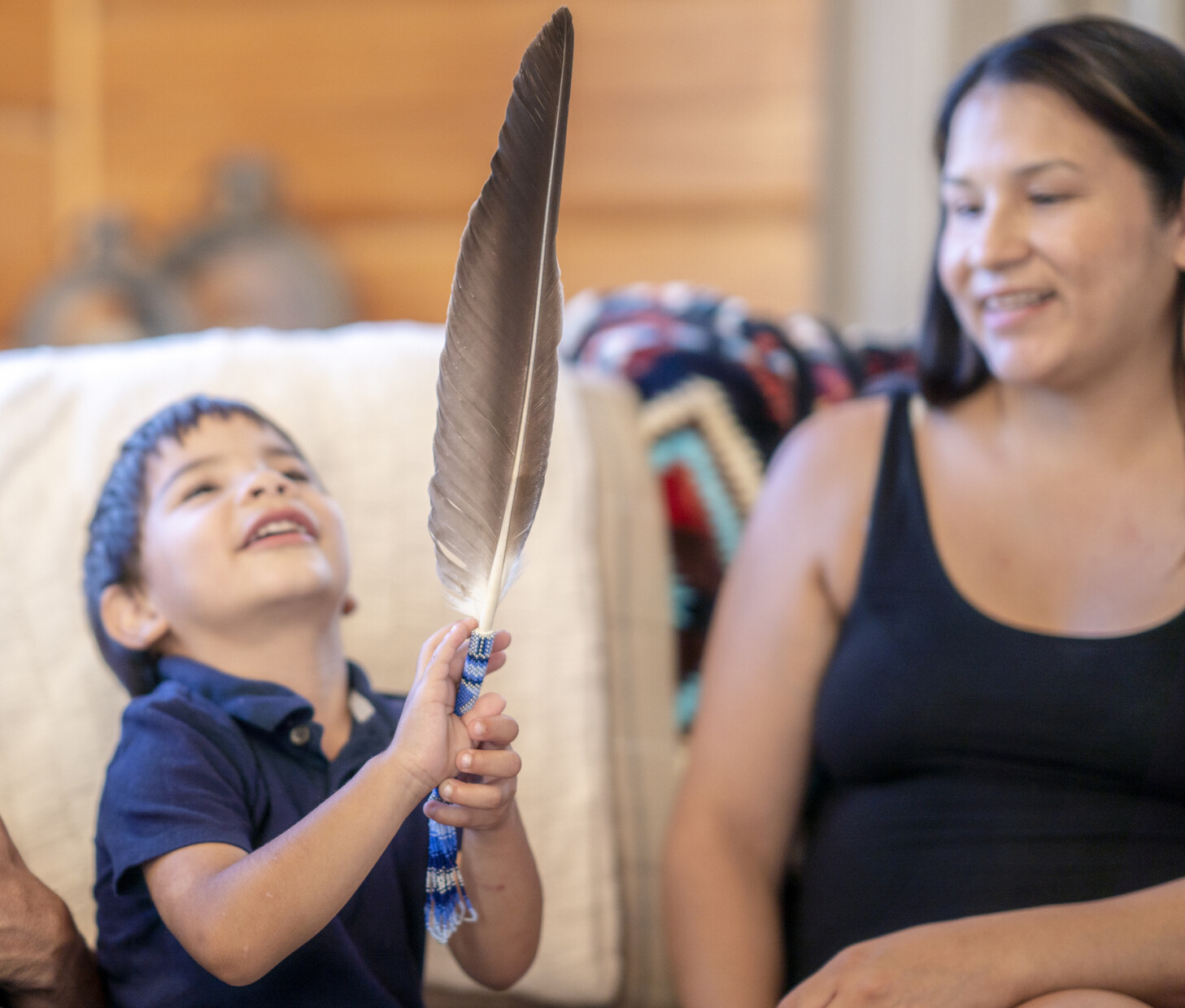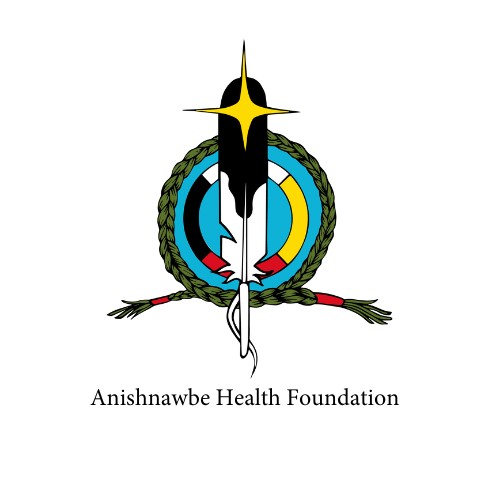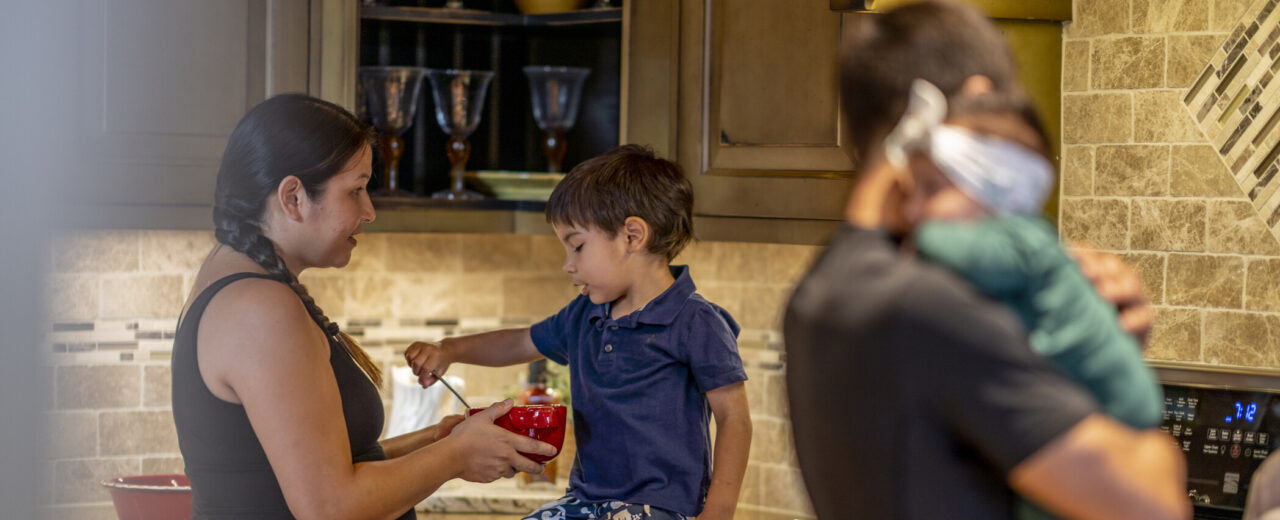 Nourish a Family in Need this Holiday Season
Nourish a Family in Need this Holiday Season
Bringing Joy to Indigenous Families, One Meal at a Time
Toronto's name originates from the Mohawk word “Tkaronto,” meaning “the place in the water where the trees are standing." It sits on the traditional territory of the Mississaugas of the Credit, the Anishnabeg, the Chippewa, the Haudenosaunee, and the Wendat peoples. Today, Toronto is home to a diverse Urban Indigenous population, including the original inhabitants and others from across Turtle Island (North America). Toronto's Indigenous community remains resilient, deeply rooted in its cultural heritage. Organizations like Anishnawbe Health Toronto (AHT) provide critical support, offering holistic healthcare that integrates traditional healing practices. AHT serves over 33,000 clients annually, with nearly 20% under 21. Toronto's Indigenous community continues to thrive, participating in ceremonies, sharing their cultures, and enriching the city's cultural diversity.
Necessity
Ontario has a thriving Indigenous business community, with over 28,000 Indigenous-owned businesses. Many of them are innovative and successful in sectors like technology, tourism, environmental services, and artisanal crafts. The Indigenous economy in Ontario is growing rapidly. This entrepreneurial spirit is a source of pride and empowerment within Indigenous communities in Ontario.
Activity
We purchase and hand-deliver healthy and fresh food to low-income Indigenous families with children in Toronto.
Countable effort
For every GOOD DEED one-half pound of healthy and fresh food can be purchased and distributed to families experiencing food insecurity.
Result
Parents will be able to provide nutritious meals at a time of added financial burden.
Systemic effect
Improved food security for Indigenous children that can lead over the long-term to increased physical, intellectual, emotional and social development.
Background
In Toronto, within the heart of Ontario, many urban Indigenous individuals face food insecurity. Statistics Canada data shows high levels of food insecurity among off-reserve Indigenous populations, with one-third of off-reserve Indigenous households affected. In 2018, about 25% of Indigenous adults in Toronto reported inadequate food for themselves and their families. The long-lasting effects of colonization, residential schools and the '60s Scoop' have led to several deep-rooted challenges such as loss of identity, homelessness, and food insecurity. This issue is not just about hunger; moderate to severe food insecurity can lead to malnutrition, impacting the physical, intellectual, emotional, and social development of children. This problem is exacerbated by a lack of access to high-quality, nutritious food.
The good deed
Your GOOD DEED can make a real difference this holiday season. Thanks to our generous donors, we're able to provide healthy, fresh food hampers to Indigenous families in Toronto. These hampers bring much-needed relief, especially during the expensive and stressful Christmas Season. Our goal is to deliver hampers to Anishnawbe Health Toronto clients, specifically those with children under 18 and an income under $25,000 per year. Each hamper is hand-delivered by our dedicated staff and volunteers. Your contribution not only puts food on the table but also brings families together over a delicious Christmas meal, ensuring children wake up to a warm meal on Christmas morning and allows parents to enjoy the holiday season without added stress. This holiday season, let's remember these families and ensure that no one goes hungry. Together, we can make a difference and bring joy to Indigenous families, one meal at a time.

About Ontario, Canada
Ottawa
Ontario is home to the largest Indigenous population in Canada, with over 375,000 Indigenous people, according to the 2021 census. This represents about 3% of Ontario's total population. The province has 133 recognized First Nations and numerous Métis communities.
Given the income disparities, it’s reasonable to estimate that the GDP per capita for the Indigenous population could be 25–30% lower than the overall average. Based on these assumptions, the GDP per capita for Indigenous populations in Ontario might be estimated around $40,000–$45,000 CAD.
Indigenous life expectancy is 8–10 years lower. High school completion and post-secondary education rates are significantly lower for Indigenous populations. Indigenous people earn 25–30% less on average, contributing to higher poverty rates and lower standards of living.
Ontario has a thriving Indigenous business community, with over 28,000 Indigenous-owned businesses. Many of them are innovative and successful in sectors like technology, tourism, environmental services, and artisanal crafts. The Indigenous economy in Ontario is growing rapidly. This entrepreneurial spirit is a source of pride and empowerment within Indigenous communities in Ontario.
About the organization and further information

Anishnawbe Health Foundation
Website
https://www.supportanishnawbe.ca
Further information and source
- • Mills, S. Roque, S. 2019. Land acknowledgements: uncovering an oral history of Tkaronto. United Way Greater Toronto.
- • Indigenous Affairs Office, City of Toronto. 2022. 2022-2032 Reconciliation Action Plan.
- • FoodShare Toronto, n.d. Indigenous Food Insecurity Fact Sheet.
- • Ireland, N. 2023. Food insecurity among Indigenous kids is a 'public health crisis,' doctors say. CTV News.
- • Indigenous Peoples in Toronto.




